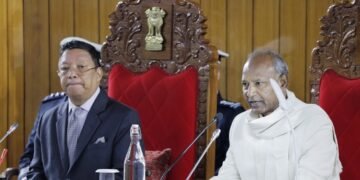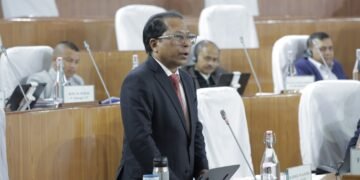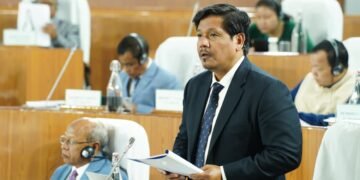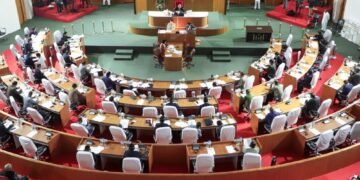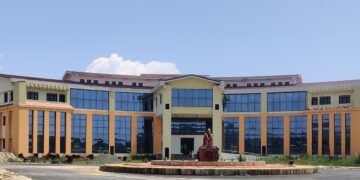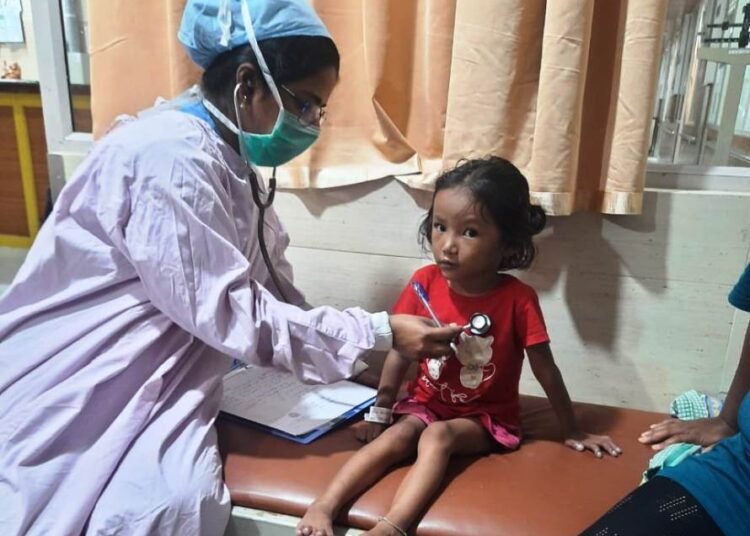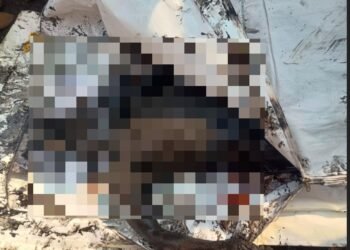Arphon D Marak, a constable at Tura Police Station and his wife constantly worried about their one-and-a-half-year-old daughter Chuesa Amora R Marak, whose fingers, nails, and lips had turned blue. Fearing the worst, they took her to Tura Civil hospital for a check-up, where she was diagnosed with congenital heart disease (CHD) and was referred to Shillong for further treatment. The doctors in Shillong recommended that the child undergo surgery, however, her parents were apprehensive about the surgery and did not go through with it.
A study by the Paediatric Cardiac Society of India (PCSI), estimates that the number of children born with congenital heart disease in India is more than 2 lakh per year. Of these, about one-fifth are likely to have serious defects, requiring an intervention in the first year of life. “Poor access to quality health care for children has long been hindered by challenges like lack of awareness, the mindset of parents, and poverty’,’ said Ramkumar S, Mission Director of the National Health Mission, Meghalaya.
When Chuesa did not start walking even at the age of two, her parents took her to the District Maternity and Child Hospital in Tura where she was referred to a specialist at the District Early Intervention Centre (DEIC) under Rashtriya Bal Swasthiya Karyakram (RBSK).
The government of Meghalaya, under the leadership of the Chief Minister Conrad K Sangma and Health Minister James PK Sangma, has taken various initiatives to counter CHD. After understanding the importance of speciality treatment for CHDs, agreements were signed with hospitals like Apollo Chennai, Apollo Guwahati and Amrita Institute of Medical Science (AIMS) for secondary and tertiary care management for all paediatric cardiology cases detected by DEIC under the RBSK scheme from Meghalaya. These MoUs were signed between the RBSK, NHM Meghalaya and Apollo Hospital Enterprise in May 2022 and with AIMS in July 2022.
Having recognized Arphon D Marak and Mairinia R Marak, the child’s parents’ apprehensions, the doctors and social workers at DEIC counselled them on the importance of getting little Chuesa operated at the earliest. “The staff made sure that we understood the procedure thoroughly and they were always available and willing to answer any of our doubts even over the phone’,’ said the father.
The DEIC was able to screen over 1.78 lakh children last year in Garo Hills alone. Children with mild ailments are referred to Civil Hospital for treatment but children with serious conditions such as CHD, corneal opacity, cleft lip, etc., are referred to tertiary care centres such as NEIGRIHMS and Bansara Eyecare Centre in Shillong, Amrita Institute of Medical Sciences and Research Centre (AIMS) in Kochi and Mission Smile in Guwahati.
Chuesa was one of the 14 CHD patients recommended for surgery from the Garo Hills during a screening camp organised by DEIC in Tura. Surgeries for these 14 children were conducted by some of the country’s top cardiologists at AIMS Kochi as per the MoU. ‘’Under the RBSK scheme all expenses including travel, accommodation, and treatment were covered for all patients’’ informed Johnson J Nongbet, State RBSK Consultant, NHM Meghalaya.
A month after the successful surgery of little Chuesa, her mother fondly looks at her daughter walking and playing about with her peers. “We have even enrolled her in playschool now,” a grateful Mairinia said. “After the surgery, the bluish tint on her skin has disappeared and, as a mother, I am overjoyed to see my daughter walking, mingling and playing about as other normal kids of her age.”
The parents still visit DEIC regularly for check-ups and follow-up care to ensure that their daughter leads a normal life.



